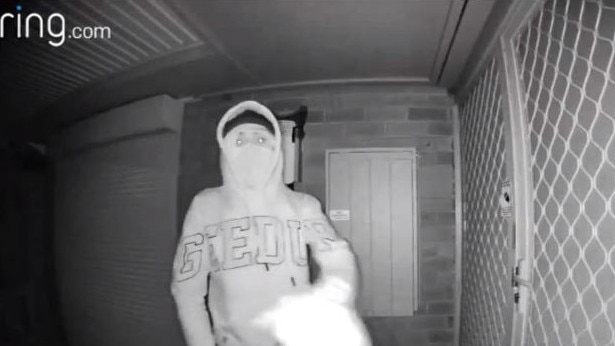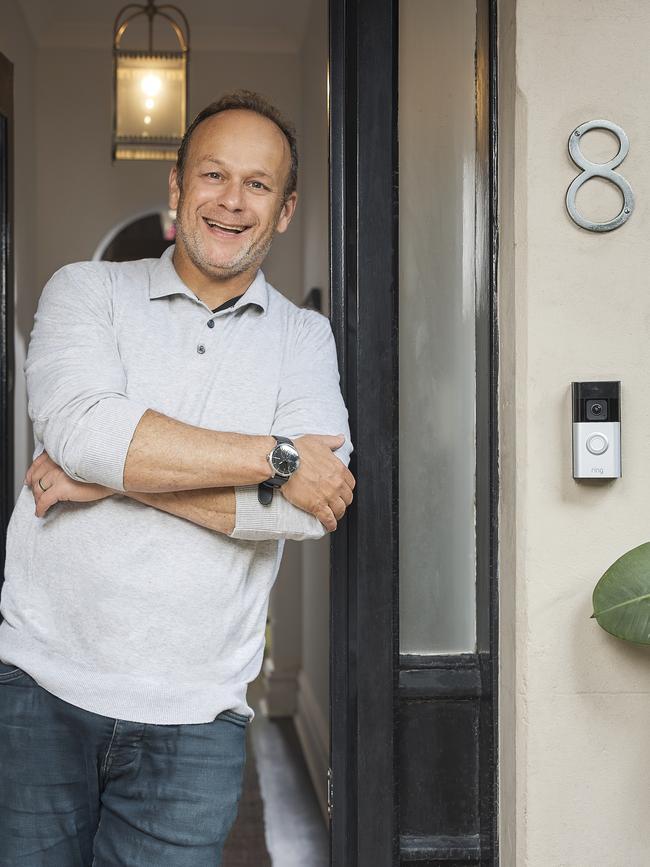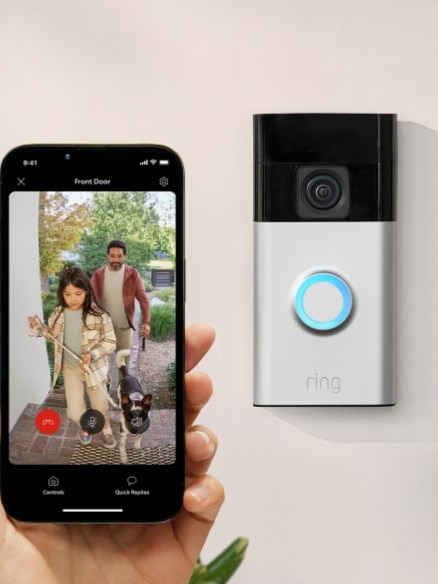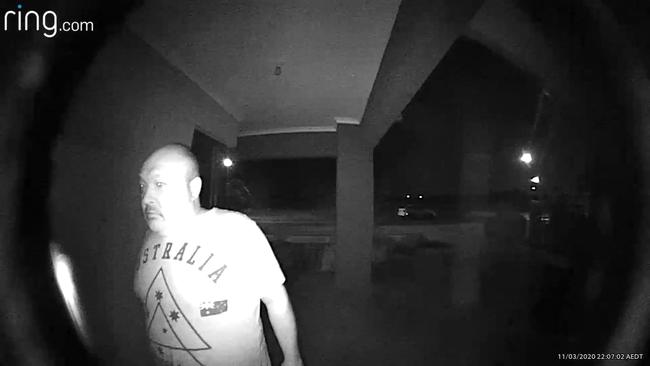‘Holiday heist’ threat to fuel $1bn security bonanza as Australians spend up on video security
Almost 12 per cent of Australians have experienced a home burglary and January is the worst time of the year for break-ins. Here’s how you can defend your home.

Australians are expected to spend almost $1bn on video doorbells and home security systems at Christmas to defend their homes against holiday thieves, new research suggests.
Australians are defending their doors, windows, and fences with devices from Amazon’s Ring, Google, China’s Eufy and other consumer security companies.
The NRMA says January was the worst month this year for home break-ins, which accounted for 10 per cent of all theft claims.
New research commissioned by Ring – which Amazon acquired for more than $US1bn in 2019 – has revealed about 35 per cent of Australians are considering upgrading their home security systems, spending anything from $100 to more than $1000.

This means Australians are willing to spend almost $1bn on video doorbells and security cameras to defend their homes.
“As Australians spend more time out of the house and travelling this summer, the ability to keep a vigilant and watchful eye on our prized possessions lessens,” said Ring’s managing director for Asia-Pacific, Mark Fletcher.
“We know from the research that home security is top of mind over this busy period.
“Our home security solutions keep people close to what’s important, protecting homes, belongings and even pets.”
Ring’s research was based on a survey of more than 1000 Australians. Of them, 70 per cent were concerned about leaving their home unoccupied during Christmas parties and holiday breaks.
Some 33 per cent of Australians already have some form of home security, while 38 per cent say they would rely on neighbours to watch over their property.
Another 35 per cent said they would avoid posting holiday plans on social media.
Australian were particularly concerned about parcel theft, as about 35 per cent expected more deliveries than usual, and 34 per cent worried that unattended packages might be stolen.

The concerns raised included burglary and home intrusion, damage, parcel theft, pets’ wellbeing – 35 per cent said they were worried about leaving pets alone – and staying connected to loved ones.
Many video doorbells and home security cameras allow people to check on their properties remotely via a smartphone or smartwatch. Video monitoring can be accessed via a subscription for Ring and Google customers. Eufy’s system comes with a hard drive, meaning people don’t have to pay a subscription to store footage.
Mr Fletcher said while helpful, security systems weren’t a complete substitute for common sense. He advises people to double check all windows and doors are locked before going on holiday, adjust recurring deliveries to prevent a home appearing vacant, and setting timers on smart home devices, such as lights, to create the “illusion of occupancy”. “Having your radio turn on at various points throughout the day can give the impression that someone is at home,” he said.
NRMA Insurance executive general manager, retail claims, Luke Gallagher said about 12 per cent of Australians had experienced a home burglary.

“Overflowing mailboxes, overgrown lawns and empty carports are immediate signs that a home is vacant, so it’s worthwhile asking a neighbour or friend to check on your home, help with upkeep and collect deliveries,” Mr Gallagher said.
“This is also the time of year when thieves are looking around to steal parcels that are left unattended.
“Deterrence plays a significant role in the prevention of theft, as criminals typically target items that can be quickly taken and resold at a high value. According to our research, only 28 per cent of Australians store valuables outdoors securely.
“It is essential to always lock your windows and doors, and ensure valuable items, whether inside or outside your home, are stored under lock and key.”
NRMA Insurance claims data shows bicycles are the most stolen item, followed by small tech devices such as smartphones and laptops. Items that are generally accessible from the back or side of the house, such as power tools, hot water systems and copper piping, are often targeted by thieves.




To join the conversation, please log in. Don't have an account? Register
Join the conversation, you are commenting as Logout